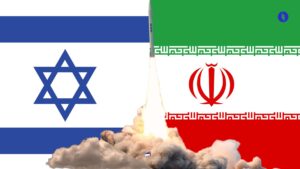The US again used its veto power to block a UN Security Council resolution on a Gaza ceasefire yesterday (Tuesday, local New York time).
Why?
Algeria (a non-permanent Council member) had been driving negotiations for weeks, culminating in yesterday’s proposal calling for an “immediate” ceasefire, “unhindered” humanitarian access, “unscrupulous” compliance with international law, “unconditional” release of hostages, and condemning “all acts of terrorism“.
Stay on top of your world from inside your inbox.
Subscribe for free today and receive way much more insights.
Trusted by 129,000+ subscribers
No spam. No noise. Unsubscribe any time.
But the US had been asking Algeria to hold off on any Council vote, arguing it risked derailing parallel efforts to negotiate a broader Israel-Hamas deal.
So Algeria had duly hit pause for weeks, until Qatar announced on Saturday that these parallel mediation efforts between Israel and Hamas weren’t actually going too well. So Algeria hit play again.
The US warned it would veto Algeria’s resolution but then, in a surprise to almost everyone, circulated its own alternative draft with some intriguing similarities:
- In a first for the US, it included the word ‘ceasefire‘ – a term it’s previously avoided, arguing it infringed on Israel’s right to self-defence
- The text also opposed Israel’s planned ground operation in Rafah, and
- It condemned Israeli ministers calling “for the resettlement of Gaza“.
However, the US resolution also had some key differences, including:
- A ceasefire “as soon as practicable” (instead of “immediate“)
- Directly linking any ceasefire to Hamas releasing its hostages, and
- Condemning the Hamas attacks on Israel (something the Council hasn’t yet actually agreed to do).
Notwithstanding this US curveball and America’s veto power on the Council, Algeria still brought its resolution to a vote yesterday. Why?
That’s partly how the Council works. Forcing a failed vote still achieves an objective – in this case, giving the world an image of Israeli and US isolation, potentially forcing a change in their approach.
So what happens now?
The UN General Assembly (where all member states have a seat) can potentially convene a debate, calling on the US to justify its veto.
Algeria could also put its resolution to a vote in the General Assembly – it’d be non-binding, but would again illustrate the degree of US and Israeli isolation.
And the US could put its own draft to a Council vote, though it’s said “we don’t believe in a rush to a vote”, particularly while parallel mediation efforts play out.
INTRIGUE’S TAKE
Folks might recall after the Israel-Hamas fighting back in 2021, President Biden phoned Israeli Prime Minister Netanyahu and reportedly said “hey, man, we’re out of runway here… it’s over.” Netanyahu then agreed to a ceasefire.
Many have been waiting for another “hey man” call this time, and there are certainly signs President Biden is running out of patience. But as we’ve said before, there are also signs that this type of call could still be far off.
From Israel’s perspective, Hamas broke the 2021 ceasefire with its 2023 massacre, so any phone calls in 2024 should be demanding that Hamas release the hostages, lay down its arms, and end the war it started. From a Palestinian perspective, the latest US veto makes it a partner in genocide.
And in the US, support for Israel is still one of the few bipartisan positions left in DC – it’s hard to see that changing in an election year, though there’s more dissent within the president’s party over the human toll in Gaza.
So our sense is the US will double-down on what it clearly sees as the way out: parallel mediation efforts on an Israel-Hamas deal. Biden has reportedly spoken to key regional players several times this week and – right on cue – the White House coordinator for the Middle East is due to land in the region today.
Also worth noting:
- Algeria’s Security Council resolution received 13 votes in favour, including from US allies like France, Japan, South Korea, and Slovenia. The UK abstained, and the US vetoed.
- The latest figures out of Gaza put the death toll at 29,092. Hamas says around 6,000 of its combatants have been killed (Israel says the real number is twice that). Israel has also reported 234 of its troops killed since October.








